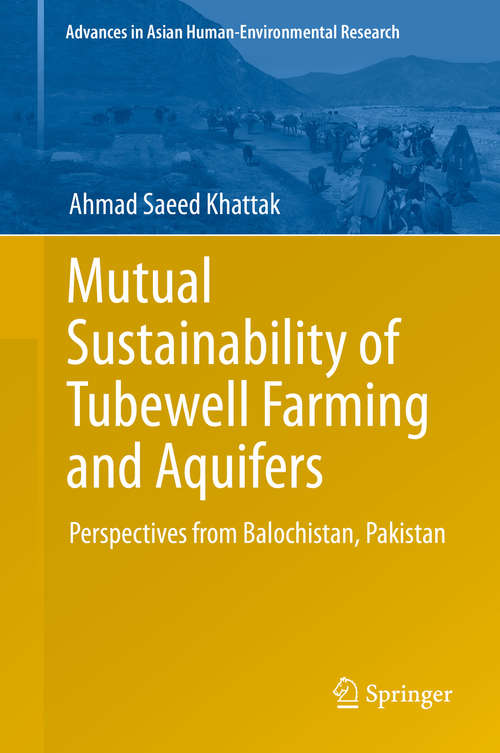Mutual Sustainability of Tubewell Farming and Aquifers
By:
Sign Up Now!
Already a Member? Log In
You must be logged into Bookshare to access this title.
Learn about membership options,
or view our freely available titles.
- Synopsis
- This book develops and presents a conceptual model for sustainable-groundwater irrigated agriculture. The model is based on the general principles of the economic theories of cost-benefit relations and behavioral models of resource use. The study has evaluated the advances in tubewell farming and the aquifer potential in arid Balochistan over a period of three decades. It has analyzed the booms and busts of the farming over time taking into consideration the local aquifer limitations and the socio-political considerations and policy framework. Three data sets - farmers, expert officials and satellite images - have been used to aid validation. By observing the most vital parameters, the study has concluded that the local aquifer has been falling at a rate directly proportional to the growth rate of irrigated farming, suggesting the current development process is unsustainable. For instance, the research finds that tubewell bores have reached down to depths where the term "aquifer mining" applies; as a result, irrigation costs have become too high to allow farming to be economically viable. In addition, desertification is steadily encroaching and the cropping pattern being changed from high-value horticulture to subsistence cropping. The study has also set parameters for assessing the willingness of farmers to accept modern, sustainable strategies and interventions.
- Copyright:
- 2014
Book Details
- Book Quality:
- Publisher Quality
- ISBN-13:
- 9783319028040
- Publisher:
- Springer International Publishing, Cham
- Date of Addition:
- 10/27/16
- Copyrighted By:
- Springer
- Adult content:
- No
- Language:
- English
- Has Image Descriptions:
- No
- Categories:
- Nonfiction, Technology, Earth Sciences
- Submitted By:
- Bookshare Staff
- Usage Restrictions:
- This is a copyrighted book.
